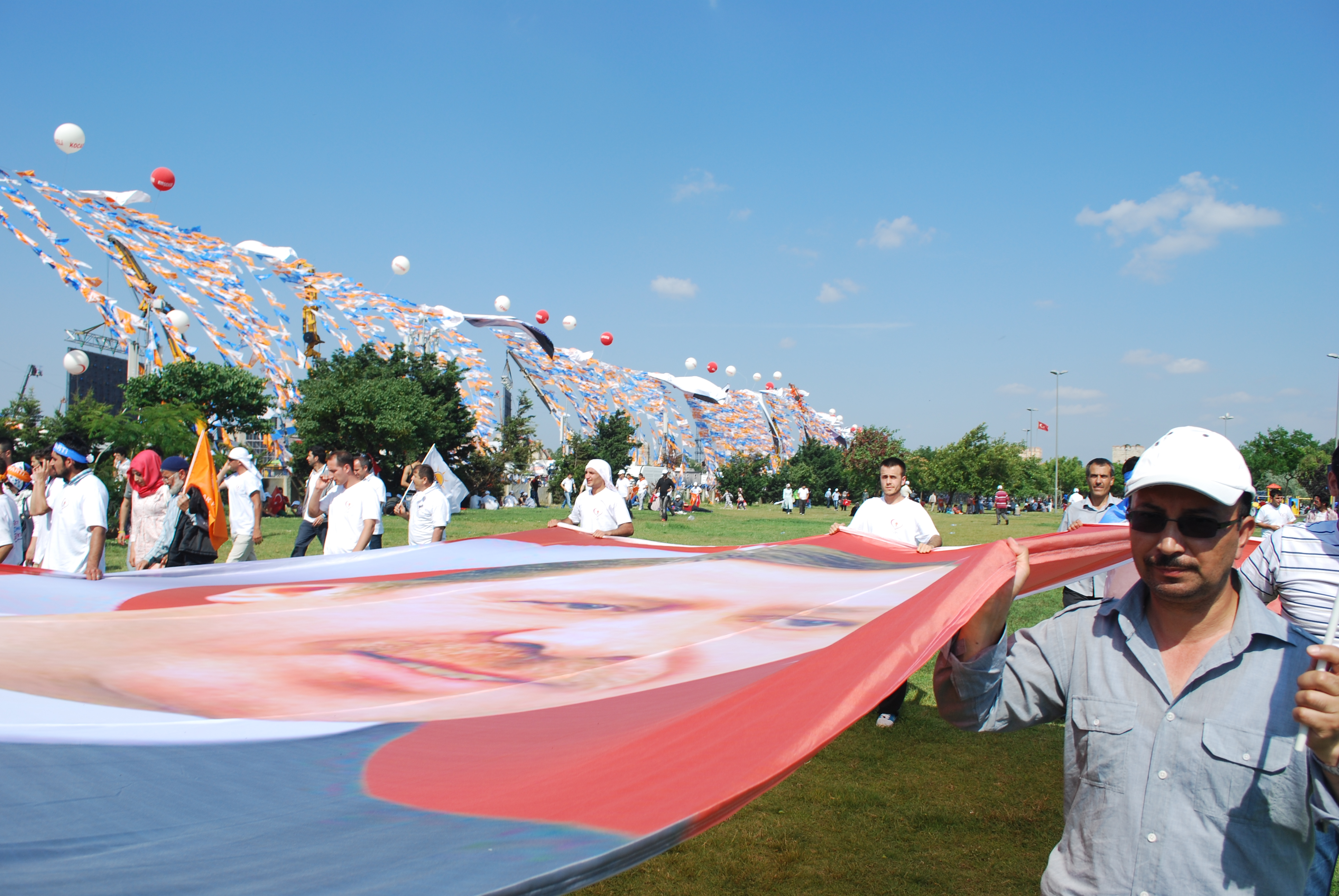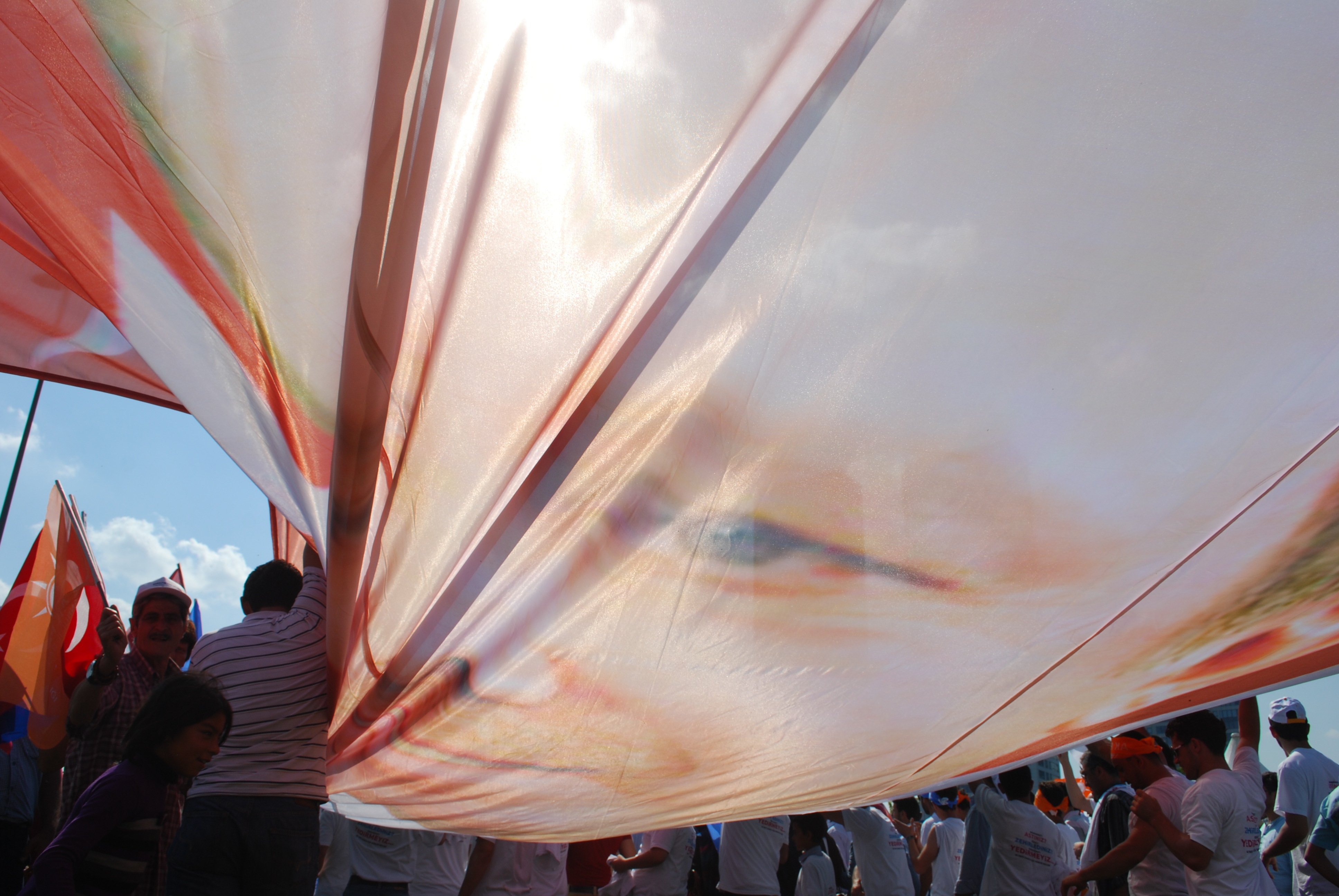
In May 2013, massive anti-government protests spread throughout Turkey and seemed to represent the first significant challenge to the authority of the ruling Justice and Development Party (AKP) and Prime Minister Recep Tayyip Erdogan. At the protests, which came to be known as "Gezi" after the Istanbul park where they originated, opposition members from diverse backgrounds voiced their dissatisfaction with the AKP and Erdogan. Months later, an investigation into corruption at the highest levels of government led to more protests and an authoritarian response from the government, which banned social media and increased its hold on the country's judiciary and police.
Opposition grew louder and, with local elections slated for March, hopeful. Mayoral candidates, minority activists, and dissident journalists all expressed their dissatisfaction with the AKP. Still, the AKP remained strong in the polls, remaining at the helm of Istanbul, the election's most important prize. But since March, the method of protesting the government has fundamentally changed in Turkey. Protesters put themselves at risk in the street and form coalitions; they started new political parties. After nearly a year of protests, Turkey had shown that it is not one or two monolithic groups competing for ownership of the country, but a diverse collection of disparate opinions and outlooks, all of whom expect to be heard.






